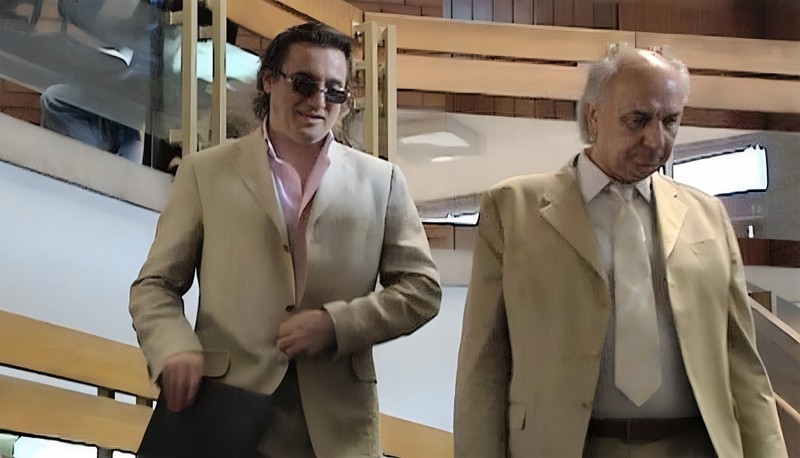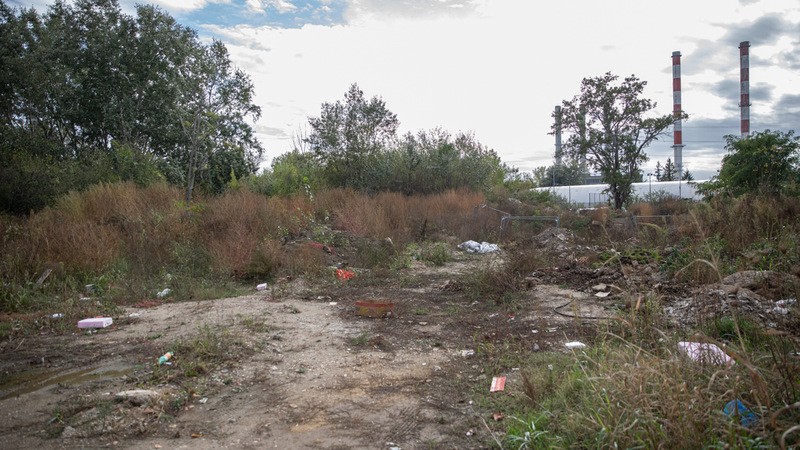In October 2008, a motorbike packed with explosives detonated in a parking lot outside the Zagreb office of Nacional, a weekly magazine known for its sensational headlines and exposés of political and business scandals. The scooter had been placed next to a car used by the publication’s founder, Ivo Pukanić. He was killed instantly when it exploded, along with a colleague.
Two years later, a Croatian court convicted six men of Pukanić’s murder, sentencing them to a total of 163 years in prison. Prosecutors said organized crime figures from across the Balkans had been involved in planning and executing the assassination.
The court found that the “key middleman” in organizing the murder was Slobodan Ðurović, a man born in Montenegro but living in Serbia, who Interpol and several other regional police agencies described as a major organized crime figure known in the criminal underworld as “The Cardinal.” He was jailed for 23 years, but it was never established who ordered and paid for the murder.
Prosecutors had alleged that cash from a mysterious 780,000-euro transfer into Ðurović’s personal bank account in Montenegro had been used to pay some of the assassins, but the money trail seemed to end there. The payment came from a company called General Pioneer Inc., but it had been registered in the British Virgin Islands, whose strict corporate secrecy rules make it difficult to determine the owners of companies. The person behind General Pioneer has remained a mystery.
But now, thanks to leaked documents from Cypriot corporate service provider MeritServus, reporters from OCCRP’s partners KRIK in Serbia and BIRD in Bulgaria finally managed to identify the company’s owner: a Bulgarian businessman named Ognian Bozarov.
Reporters found no direct evidence that Bozarov ordered or played any role in the assassination of Pukanić, but the leaked documents — combined with information gleaned from corporate documents and court records by KRIK reporters — offer new insights into Ðurović’s business dealings with Bozarov in the lead-up to the murder.
Files from the murder trial and corporate records show that Bozarov had employed Ðurović for at least a year before the murder through another company he owned, this one registered in Serbia. Ðurović left his role at this company, Karizia DOO, three days before Pukanić was assassinated.
Newly leaked documents also reveal for the first time that General Pioneer paid Ðurović 255,000 euros five months before the 780,000-euro transfer.
KRIK asked Croatian prosecutors whether they had looked into the ownership of General Pioneer, but the questions went unanswered. It is not clear whether prosecutors were aware of or investigated the earlier 255,000-euro payment.
In a written statement to OCCRP, Bozarov said he “most certainly did not arrange for [Pukanić’s] murder” and had never threatened or harmed anyone. Bozarov said that any payments made through his companies “were purely for business purposes.”
Throughout his trial, Ðurović maintained that the large payment he received was related to a land deal in Belgrade, Serbia’s capital. But the new documents and records obtained by reporters raise questions about whether the criminal’s business dealings with Bozarov made economic sense, and whether the payments to him were actually connected to a legitimate land deal.
The leaked MeritServus files were obtained by the pro-transparency group Distributed Denial of Secrets and initially shared with OCCRP and the Guardian. This investigation is part of Cyprus Confidential, a global investigative collaboration led by the International Consortium of Investigative Journalists (ICIJ) and Paper Trail Media.
About the ‘Cyprus Confidential’ Project
Cyprus Confidential is a global investigation examining Russian influence in Cyprus, and how local service providers helped oligarchs and billionaires structure their wealth over the years preceding the 2022 full-scale invasion of Ukraine. The project is based on more than 3.6 million documents leaked from six different Cypriot service providers, as well as a Latvian firm.
In the Crosshairs
Pukanić was not short of enemies. Blunt and unapologetic, he used his extensive network of political, business, and underworld contacts to dig up fodder for the scandalous headlines and pictures he splashed across the pages of Nacional, which he had co-founded in 1996.
His colleagues publicly criticized him for his friendly connections with controversial businessmen and criminals, but he also produced major investigative stories about powerful figures. His reports on the wealth of the former Croatian Prime Minister Ivo Sanader garnered widespread attention. So did a series of stories on connections between the then-President of Montenegro, Milo Djukanović, and the controversial Serbian businessman Stanko Subotić. Pukanić wrote extensively about Subotić and Djukanović’s alleged ties to cigarette smuggling. When Italian prosecutors launched a case against Djukanović in 2002, the journalist was one of their witnesses (Djukanović invoked diplomatic immunity to get the charges in Italy dropped.)
After a first attempt on Pukanić’s life in April 2008, he was given police protection. But despite this, it emerged after his death that he had been surveilled for three months before his killing in 2008, and that the murder had been planned so carefully that a Serbian sniper was waiting on the roof of a neighboring building to shoot him in case the bomb didn’t detonate, or the explosion didn’t kill him.
While the mastermind of Pukanić’s assassination was never identified, an organized crime figure was tried in Serbia for orchestrating the killing: Sreten Jocić. Known as “Joca Amsterdam” due to his base in the Netherlands, Jocić is a Serbian drug lord and infamous criminal.
A 2008 Interpol report from Serbia, in coordination with Dutch and French authorities, described Ðurović as Jocić’s "right hand,” and said that he managed Jocić’s business and bought companies on his behalf. According to another report from Interpol Montenegro from the same year, Ðurović was Jocić’s “kum” (a Slavic expression for a very close relationship) in the 1990s.
Serbian prosecutors indicted Jocić in 2009, alleging that he organized Pukanić’s assassination, but he was eventually acquitted after a judge ruled that the prosecution did not present sufficient evidence of his connection to the murder.
Jocić’s lawyer did not respond to written questions. Ðurović did not respond to a request for comment.
An ‘Extremely Urgent’ Payment
During Jocić’s trial in Serbia, Ðurović was pressed about the 780,000 euros he had received in his bank account. He insisted that the money had been paid “by my Bulgarian friends” in exchange for his help filing paperwork to the Belgrade city administration for a land deal. When asked why he was paid such a large sum for a simple task that “everyone could … do,” he did not have a clear answer.
Montenegrin anti-money laundering investigators also questioned the explanation for the wire transfers at the time of the trial, and told Croatian investigators that Ðurović withdrew 60,000 euros from his Montenegrin account the day after the transfer from General Pioneer. Croatian authorities shared the findings with Serbian counterparts, who later said in an indictment that this cash withdrawal was part of how Ðurović paid the other conspirators in the assassination.
Records from the trial and the leaked documents provide additional evidence that Ðurović and Bozarov had been working together for many months before Pukanić was killed.
When police arrested Ðurović six days after Pukanić was killed, they confiscated two phones from him. Although police and prosecutors did not make note of this at the time, KRIK journalists trawling through the old court records found telephone numbers for Bozarov in Bulgaria and Cyprus among Ðurović’s contacts.
Who Is Ognian Bozarov?
The 76-year-old Bozarov has maintained a relatively low profile, even in his native Bulgaria. One of the few public references to him is found in a 2011 book by Christo Christov, a Bulgarian researcher and journalist. Christov wrote that Bozarov worked for the Communist-era intelligence service during the dictatorship of Todor Zhivkov, who was in power for 35 years until the fall of communism in 1989.
The earliest evidence of Ðurović and Bozarov working together comes from November 2007, when Ðurović transferred a Serbian company called Karizia to another company ultimately owned by Bozarov for the nominal fee of 500 euros, covering the funds Ðurović had injected when setting up Karizia.
Ðurović had used the company to apply to the Belgrade Land Development Public Agency for a 99-year lease to a land plot. The award was approved in September 2007, and the contract was signed on November 5, 2007 — three days after Karizia was transferred to Bozarov’s company.
On December 1, 2007, shortly after transfering Karizia to Bozarov, Ðurović signed a contract with General Pioneer to help secure an increase in the area on which Karizia was allowed to construct. His fee for this was to be 255,000 euros, even though securing permission to expand the construction area simply required paying a higher lease. General Pioneer had no formal relationship with Karizia, and it is unclear why Bozarov used this company to pay Ðurović.
It is also unclear why this side agreement was made at all, since Ðurović remained Karizia’s general director after transferring ownership of the company, meaning that he continued to work for the company as Bozarov’s employee.
In May 2008 the request was granted by the Belgrade city administration, and the 255,000 euros were paid into Ðurović’s Serbian account.
A second contract between Ðurović and General Pioneer, dated September 19, 2008, set out the terms for the second additional payment of 780,000 euros for having successfully increased the size of the buildings permitted on the plot. Ðurović was still employed by Karizia at the time of the second payment.
Leaked correspondence suggests the 780,000-euro payment was made in a hurry. In an email to a Cypriot service provider that helped manage General Pioneer, sent the day before the transfer was made, Bozarov’s daughter wrote that the payment to Ðurović was “extremely urgent” and needed to be sent “tomorrow morning, first thing if possible.”
Then, just three days before the assassination of Pukanić, Ðurović resigned as a director of Karizia and left the company, whose ownership was simultaneously transferred to a Cypriot firm.
Bozarov’s daughter did not respond to a request for comment. Bozarov did not respond directly to questions about his business with Ðurović, but said any payments from his companies were supported by “valid contractual documentation,” and he and his lawyers shared copies of General Pioneer’s contracts, signed with Ðurović, related to the land deal.
Yet more than 15 years after those documents were signed, nothing has been built on the plot of land. When KRIK reporters visited the site last month, they found it empty, overgrown with vegetation and scattered with litter.






